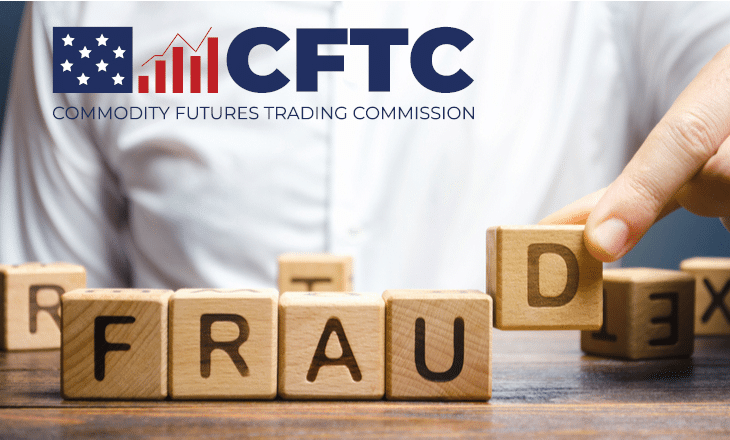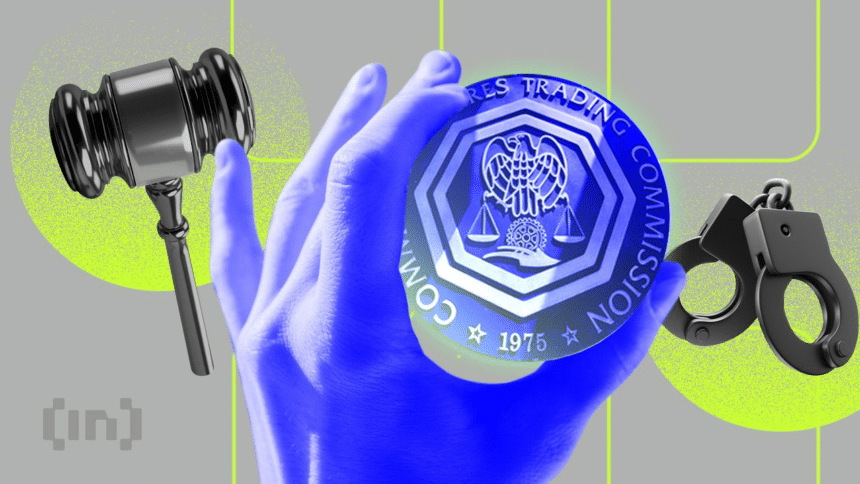In a significant legal victory, the Commodity Futures Trading Commission (CFTC) successfully obtained a $31 million fine in the CFTC fraud case. The federal court ruling marks a pivotal moment in efforts to combat illicit activities within the digital asset sector. The case, prosecuted by the CFTC, centred on allegations of fraudulent solicitation and misappropriation of cryptocurrency funds. The defendants were accused of operating a scheme that targeted unsuspecting investors with false promises and deceptive practices.
The court’s decision underscores the CFTC’s commitment to enforcing regulations and protecting investors from fraudulent activities in the burgeoning cryptocurrency market. The hefty fine imposed serves as a deterrent to would-be perpetrators, highlighting the severe consequences of engaging in fraudulent schemes involving digital assets. This ruling is expected to have ripple effects across the cryptocurrency industry, potentially leading to increased scrutiny and enforcement actions against similar fraudulent activities. As regulatory bodies continue to ramp up efforts to safeguard investors and maintain market integrity, cases like these serve as crucial milestones in establishing legal precedents and shaping future regulatory frameworks for cryptocurrencies.
Analysing the CFTC Fraud Case: A Three-Year Legal Battle
The complicated operation that stole over $3.9 million from 61 users was uncovered in October 2021. CFTC launched its investigation into allegations of fraud involving Abner Tinoco and Kikit & Mess Investments, LLC. The defendants were said to have run a standard Ponzi scheme. This led to the charges of deceitful solicitations and theft of client monies. The level of Tinoco’s dishonesty was exposed as the CFTC fraud case progressed. Tinoco promoted Kikit as a real investment firm in September 2020. They posed as a company trading cryptocurrencies and foreign exchange beginning. Tinoco, however, spent the clients’ money on his lavish lifestyle rather than investing it as promised.

U.S. Judge David C. Guaderrama was persuaded by the CFTC to seize all assets owned by Tinoco and his company. This move was part of their rapid response to the CFTC fraud case. This critical action stopped the future loss of money and made it possible to review the transfer records thoroughly. Defendants were barred from trading in any CFTC-regulated market. They were also barred from breaking laws contained in the Commodity Exchange Act (CEA). This was taken off by an initial consent order of permanent injunction that the CFTC acquired in March 2022.
The Verdict: A Hefty Fine and Restitution
Judge Guaderrama handed down the ultimate judgement against Abner Tinoco and Kikit & Mess Investments, LLC in the CFTC fraud case. The verdict was announced in a press release on July 26, 2024. The court handed out heavy fines and restitution orders. He ordered the two parties to pay a total of more than $31 million in fines.
In addition to compensating 199 victims of fraud with $6.20 million, the defendants are required to pay $6.25 million in disgorgement. This comes alongside a dollar-for-dollar credit for any settlement payments made to victims. Tinoco and Kikit will pay $18.7 in civil penalties in addition to the stolen funds from their bogus investment plan. The multi-purpose nature of the CFTC fraud case’s extensive punishment structure is evident. Its goals are to recompense victims and recover stolen funds. Also, it aims to punish the perpetrators to prevent similar fraud in the cryptocurrency market. The hefty penalties from the CFTC fraud case demonstrate the seriousness of Tinoco’s conduct.
Criminal Proceedings and Incarceration
Criminal charges were also levelled against Abner Tinoco for his fraudulent scheme. However the CFTC fraud case primarily dealt with civil penalties. Tinoco pleaded guilty to five wire fraud crimes in November 2022. This was in response to an indictment filed by the US Department of Justice (DOJ). Tinoco is presently confined at the Federal Correctional Institution in Salford, Arizona. He is serving an 84-month term according to his criminal conviction.

The court also mandated that the defendant from El Paso, Texas to pay $9.02 million. This would be in reparations to those he wronged, on top of his prison sentence. Concurrent criminal proceedings in the CFTC fraud case show federal authorities’ multipronged approach to Bitcoin fraud. Regulators and law enforcement can measure deceptive damage by submitting civil and criminal charges.
Implications for the Crypto Industry
For the crypto industry, the outcome of the CFTC fraud case is crucial. The regulatory organizations’ ability to detect and punish fraudulent conduct is becoming more sophisticated. Investors and reputable cryptocurrency firms would have to rest easy. The CFTC fraud case ruling is an assurance that regulators are doing their best to keep the market honest. As a cautionary story, it shows how important it is to do research before investing into crypto projects.
Other would-be con artists may reconsider fraud after seeing the CFTC’s heavy sanctions. Cases of this magnitude have a significant impact on the regulatory environment. It impacts enforcement agencies’ rules as the Bitcoin market develops. An important step toward safeguarding bitcoin investors was reached with the ruling of the CFTC fraud case. The $31 million fine and penalties demonstrate the seriousness of digital asset market fraud. This lawsuit highlights the CFTC’s dedication to protecting investors and preserving the honesty of bitcoin markets. The BIT Journal provides updated information on the current events that blanket the crypto industry. Stay tuned!





























